Imran Khan’s India equation
Imran Khan is coming to India to speak at the World Economic Forum to be held from 6 to 8 November in Gurgaon. What does Pakistan’s potential next prime minister have in store for India?
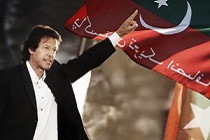 Courtesy: Imran Ghazali/WikimediaCommons
Courtesy: Imran Ghazali/WikimediaCommons
Imran Khan is coming to India to speak at the World Economic Forum to be held from 6 to 8 November in Gurgaon. What does Pakistan’s potential next prime minister have in store for India?
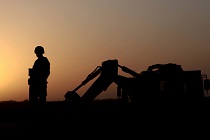 Courtesy: Isafmedia/Flickr
Courtesy: Isafmedia/Flickr
As the NATO troops prepare to pull out of Afghanistan in 2014, India is already positioned to take on a larger, pro-active role, which can radically alter the balance of power in South Asia. However, what will determine the future of security in the region, is how India and Afghanistan deal with Pakistan.
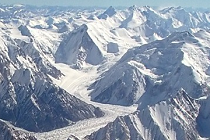 Courtesy: Guilhem Vellut/WikimediaCommons
Courtesy: Guilhem Vellut/WikimediaCommons
There have been many discussions on the need to de-militarise the Siachen Glacier. Why have India and Pakistan suddenly begun to believe that they were mistaken in holding on to the region all this while? What are the possible ramifications of de-militarising this strategic location?
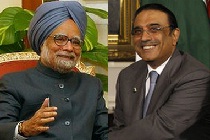 Courtesy: Cropbot, Russavia/WikimediaCommons
Courtesy: Cropbot, Russavia/WikimediaCommons
Manmohan Singh is likely to visit Pakistan later this year. As the first visit of an Indian Prime Minister to the country in 8 years, it will be a significant event. The timing and the agenda of the PM’s visit, however, raise a few questions.
Understanding the rationale behind India’s diplomatic decisions is essential for policymakers and citizens alike, so as to take better decisions in the future. Gateway House interviews former Ambassador to Italy, K. P. Fabian, to discuss how India's assessment of policy values the spoken word over context.
 Courtesy: Open Democracy
Courtesy: Open Democracy
The NATO withdrawal from Afghanistan in 2014 should be done tactically so that it doesn't destabilize Pakistan. Despite having accepted Pakistani help in the past, the Taliban might empathize with Pakistani Pashtuns and spread the very secessionist tendencies which Pakistan’s Afghan policy was designed to prevent.
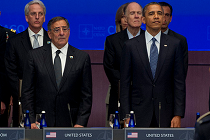 Courtesy: Secretary of Defense/Flickr
Courtesy: Secretary of Defense/Flickr
Pakistan’s refusal to re-open NATO supply routes into Afghanistan has made the country an instant pariah in the U.S. at the NATO Summit. The communiqué released confirms a withdrawal of 130,000 troops by as early as mid-2013. Can the remaining soldiers help maintain peace when a force much larger could not?
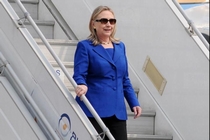 Courtesy: Ministry of External Affairs, India
Courtesy: Ministry of External Affairs, India
U.S. Secretary of State Hillary Clinton's recent visit to China, India, and Bangladesh is keeping with the U.S. pivot to Asia. The choice of countries has strategic significance for the U.S., where India is flagged as balancing the rise of China, and Bangladesh as a strategic base in the Bay of Bengal.
 Courtesy: U.S. Department of Defense
Courtesy: U.S. Department of Defense
An important take-away from the preliminary pact reached by Kabul and Washington is that unlike the 1990s, the Americans are not just packing their bags and leaving. This is good news in terms of regional stability, and the upcoming NATO summit may answer some questions this draft agreement raises.
Given the immediacy of rising tensions around Iran’s nuclear programme, what can India and the U.S. do to resolve the issue? Gateway House’s Manjeet Kripalani talks to Ambassador Frank Wisner about the possibilities of a strike against Iran and its effects on the India-U.S. relationship.